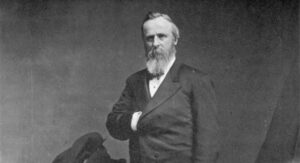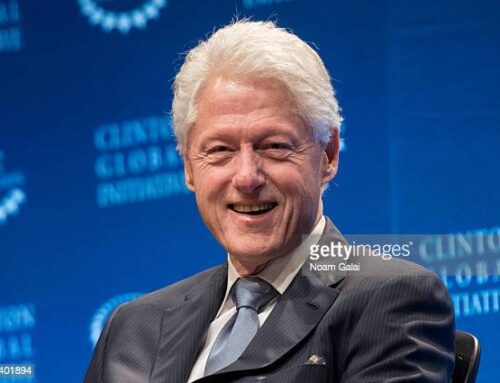Rutherford B. Hayes was the 19th President of the United States, serving from 1877 to 1881. He was born in Ohio in 1822 and later became a successful lawyer and politician.
Hayes was a member of the Republican Party and was known for his support of civil service reform and a limited federal government. He was also a strong advocate for the rights of small farmers and played a key role in the United States Reconstruction efforts following the Civil War.
One of the main challenges faced by Hayes during his presidency was the issue of Reconstruction. He struggled to find a balance between the rights of former slaves and the needs of white Southerners, and his efforts to promote reconciliation between the North and South were met with resistance from both sides.
Hayes also faced significant economic challenges, including the Panic of 1873 and the resulting depression. He worked to stabilize the economy and promote economic growth through a series of measures, including the introduction of the gold standard and the reduction of tariffs.
Despite his many challenges and limited accomplishments, Hayes is remembered as a dedicated and courageous leader who served his country during a difficult and tumultuous time in its history. He is often ranked as an average president due to his efforts to address the issues facing the country during Reconstruction and his efforts to promote economic stability.
Rutherford B hayes. In my view, was having his issues. A country that was born and was going through some important wars like Mexican American war, the 1812 war, and the civil war, reconstruction was taking place. it was in its last stage. Civil war open some issues that were not highlighted. Leadership was needed. But that is not what history knows him for. History remembers him for the fraudulent election. Civil service reforms. Before him, presidents prefer their political supporters on federal jobs. He starts doing it all differently. So what is here to learn?
Before going ahead, I want to disclose that I am typing this all from India. I am aware that Index funds are hugely successful but in India, our market is a stock-picking market. We don’t have good indices to which we can follow. Even if they will be, I am sure most of them will be dominated by banks, Information technology, and pharma. So what I believe is that letting Mutual fund manager do their work is the best thing. A fun fact is if you think of Berkshire Hathaway as a mutual fund, Warren Buffett is the fund manager.
Hayes was also remembered for his work on the election. Voting rights. The simple reason was for the fight After the Conclusion of the second term of Ulysses S Grant, He refused to run for the third time. The democratic nominee was leading but 4 states gave confusing Results. and there was a fight over that. So I think here I need to talk about corporate governance.
I can easily compare US citizens during that time with minority shareholders and the Democratic party at that time as significant shareholders.
It is painful to see an attorney being part of that drama. Though he was one wealthy person with 10000 sq feet home on a 25-acre land. But that doesn’t make me ignore what important lesson this guy teaching me.
Minority shareholders are some of the ignored people whom big sharks are running and holding money. Hayes protected black voters in the South. He was, after all, the last President in the 19th century who was genuinely interested in preserving voting rights for blacks. In some cases, Minority shareholders are similar to Black voters that day. The reason was Many people were not voting or not aware of it having rights. So their voting rights were supposed to be protected.
Here I want to mention the Uday Kotak committee. SEBI committee makes recommendations on Corporate Governance in India. To enhance the standards of corporate governance of listed entities in India, the Securities and Exchange Board of India (SEBI) constituted the Committee on Corporate Governance (Committee) in June 2017 under the chairmanship of Mr. Uday Kotak along with different stakeholders from the Government, industry, stock exchanges, academicians, proxy advisors, professional bodies, lawyers, etc., to improve standards of corporate governance of listed companies in India.
Here I am discussing some of the recommendations of the committee.
The committee recommended doubling the number of boards of directors. It was recommended by the Committee to have at least one independent woman director on the board of directors of every listed company. SEBI decided to accept the recommendation in a phased manner, i.e. at least one independent woman director in the top 500 listed entities by the market capitalization by April 01, 2019, and in the top 1000 listed entities, by April 1, 2020.
The Committee was of the view that given the increased obligations of the boards of listed entities, they should be subject to a higher quorum requirement. Further, the Committee was also of the view that for minority rights protection, the presence of one independent director as a mandatory quorum requirement was necessary. This was also accepted.
The Committee recommended that all listed companies with more than 40% public shareholding should separate the roles of chairperson and MD/CEO with effect from April 1, 2020, and after the aforesaid date, SEBI may examine extending the requirement to all listed entities with effect from April 1, 2022. SEBI accepted the aforesaid recommendation with a minor modification.
Several other recommendations were also accepted like
- reduction in the maximum number of listed entity directorships from 10 to 8 by April 01, 2019, and to 07 by April 1, 2020;
- expanding the eligibility criteria for independent directors (discussed in paragraph II below);
- disclosure of expertise/skills of directors in the annual reports of the listed entities (initial disclosure without names by March 31, 2019, and detailed disclosure by March 31, 2020).
One of the most significant recommendations of the Committee vis-à-vis independent directors was about the expansion of their eligibility criteria. Every Independent director is required to provide a declaration that he/ she meets the legal standards of independence, at the first meeting of the relevant board in which he or she participates as a director and thereafter at the first meeting of the board in every financial year or whenever there is any change in the circumstances which may affect his status as an independent director.
Another highlight of his life was he was the first president who attend public school. So I can even talk about Education loans but I am sure Woodrow Wilson, Ph.D. holder president waiting for that. and in fact Which other president can give me a better opportunity?
Rutherford B. Hayes was one of the top presidents in U.S. history for having a positive effect on the economy, an associate professor at the Georgia Institute of Technology said.
Four presidents tied for the No. 1 ranking as best president for the economy: Franklin Delano Roosevelt, Warren G. Harding, Rutherford B. Hayes, and William McKinley.
So what factors make a good economic president? In the Gilded Age, Taylor found these factors:
• Whether they faced a financial crisis and how they dealt with it
Whether they were active in the economy
• Whether they had a vision for the country
• Their relationship with major actors
• Whether they built trust in financial economic institutions
Hayes scored well in these areas, Taylor said.




